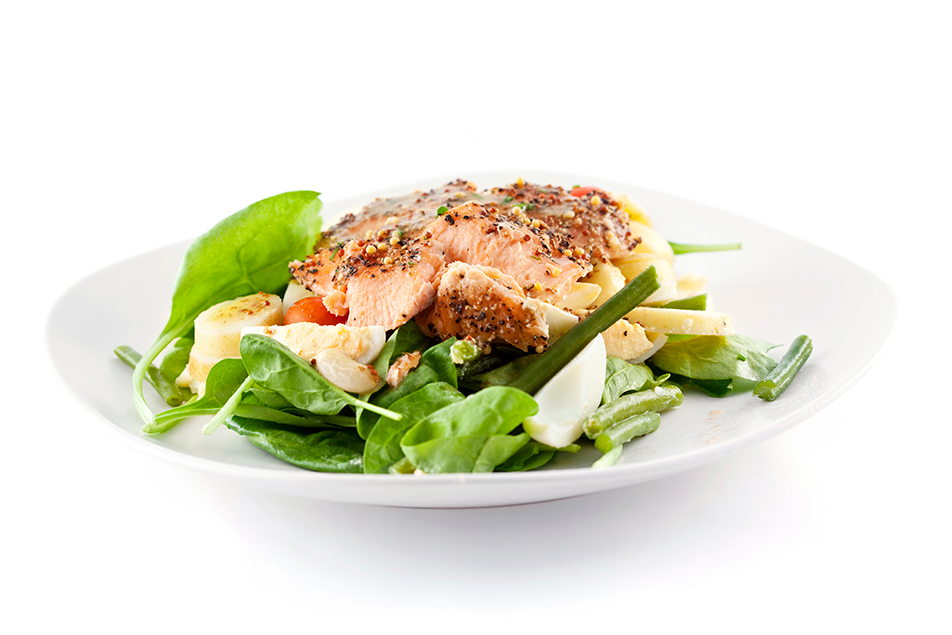
This post was written by Sami Kauffman, MA, RD, CD, sports dietitian, Parkview Sports Medicine.
Inflammation is a response process triggered when the body detects foreign invaders or has been put under high stress, like many experience following a tough workout or a return to the gym after some time away. While this reaction is completely normal, it can be uncomfortable. Luckily, there are some simple ways to support your muscles for optimal recovery.
Causes of inflammation
During a workout, muscle fibers can tear and break down. Because of this, following the activity, the muscles that were put under stress receive a rush of blood and swell up. This is the inflammatory response of our bodies as they attempt to heal the broken-down muscle fibers.
The problem with inflammation
Inflammation diminishes our regenerative capacity, meaning that our muscles will not be rebuilt as well as they should be if they are not properly nourished during this time. By reducing inflammation, we are able to rebuild our muscles properly, speed up the recovery process and decrease muscle soreness (also known as Delayed Onset Muscle Soreness, or DOMS) that would typically develop a day or two after a workout. In order to alleviate this inflammation, we turn to anti-inflammatory foods.
Anti-inflammatory foods
There are plenty of foods that consist of anti-inflammatory nutrients like:
- omega-3 fatty acids
- magnesium
- polyphenols
- prebiotics
- probiotics
According to a study published by the American Heart Association, fish oil supplements containing a specific formula of omega-3 fatty acids were shown to reduce inflammation. Consuming foods that naturally have omega-3 fatty acids are also beneficial to reduce inflammation. These include:
- flaxseed
- chia seeds
- canola and flaxseed oil
- walnuts
- fatty fish such as salmon, mackerel, tuna and sardines
Magnesium is another great nutrient that can reduce inflammation. A study published by the National Library of Medicine acknowledged that there are several cross-sectional studies that have reported an inverse association between dietary magnesium intake and inflammation. This means that by increasing the amount of magnesium in your diet (preferably from foods naturally high in magnesium, as opposed to a supplement), you are decreasing the amount of inflammation in your body. Magnesium can be found in foods such as:
- spinach
- pumpkin seeds
- chia seeds
- almonds
- walnuts
- cashews
- peanuts
- black beans
- kidney beans
- potatoes
Another essential nutrient for anti-inflammation are antioxidants. Antioxidants are substances that prevent or delay cell damage. They have been found to reduce inflammation greatly and are abundant in fruits and vegetables, especially those of darker color. Along with antioxidants, prebiotics and probiotics were also found to contribute to a reduction in inflammation. Foods high in prebiotics are:
- oats
- asparagus
- dandelion greens
- leeks
- bananas
Foods high in probiotics are:
- yogurt (look for yogurt that has live or active cultures of probiotic bacteria)
- sauerkraut
- kimchi
- pickles
When recovering from a workout, it’s important to reduce muscle inflammation through all mediums of maintenance, such as ice and rest, but arguably the most important aspect to pay attention to is food consumption. The window of time to refuel after a workout is about 30 minutes for females and 1 hour for males. Use this time wisely and select foods that will aid in reducing muscle inflammation. By incorporating these foods into your post-workout routine, you will speed up muscle recovery and reduce the onset of DOMS, allowing you to feel stronger in the days following.



